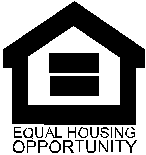
It seems like each industry has their own acronyms. The same is true for real estate.
In real estate, the letters NOI stand for Net Operating Income. The net operating income is a number on paper 9 times out of 10. It is not an actual figure that will show up in an investor’s bank account nor is it the number that will be used for tax purposes. NOI is useful in comparing the returns of various properties and for determining if a property is financeable. Think of NOI as the return a property would generate if it was purchased for all cash and regardless of taxes and depreciation.
Actual vs. Pro Forma
NOI can be calculated on an actual basis with the actual rents and the actual expenses. NOI can also be calculated on an expected or pro forma basis based on future estimated rents and estimated expenses. NOI is calculated on an annual basis in most cases.
Start with Income
To begin the calculation of NOI begin with the annual gross rental income for the property. Gross rental income is all the expected income from the property. If the property is a NNN property this will include CAM reimbursements.
Vacancy
Next you will need to deduct vacancy expenses. Vacancy expenses are an estimate of the amount of time that a property will be vacant in any given year due to tenants moving or not paying their rent. Usually this is expressed as a percentage of time. A property in a desirable location may have a low vacancy factor of 5% of the time. Another property in a questionable location may have a much higher vacancy factor and may be empty for 25% of the time or more.
By multiplying the vacancy factor by the gross income you arrive at the vacancy expense. Next you subtract the vacancy expense from the gross income. This will give you the Effective Rental Income.
To the Effective Rental Income you add Other Income. Other Income is usually miscellaneous income from parking fees, laundry, billboards, etc. Now you have arrived at the Gross Operating Income.
Minus Expenses
From the Gross Operating Income you subtract the property’s Operating Expenses to arrive at the Net Operating Income. Operating Expenses include all cash expenses paid to keep the property running at maximum efficiency. They will include property taxes, property insurance, management fees, utilities, advertising costs, accounting fees, legal fees, licenses, and other expenses.
Using NOI
NOI is used to calculate a properties Cap Rate (capitalization rate) for properties. NOI is also the number most lenders use to determine if a property has an adequate debt service coverage ratio (DSCR or DCR) to qualify for a loan.
NOI is a useful tool in helping investors analyze and compare investment properties.
